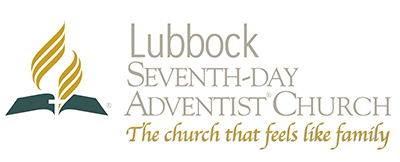Angeline B. David
It’s a familiar story. Perhaps your holiday season was
much like it. Christ was visiting with dear friends. There was
much hustle and bustle. We don’t know the size of the group
that gathered, but no doubt plenty of work had to be done.
Martha was busily serving and making everything just right for
her guest of honor.
Then comes the gentle rebuke: “you are worried and
troubled about many things. But one thing is needed” (Luke
10:41,42).
Like Martha, many of us become busily engaged with
resolutions during this time of year: lose weight, save money,
read more, eat less, take a vacation, write a book, call that
estranged friend, get organized, and on and on, being
“troubled” about many things.
But only 8 percent of people achieve their New Year’s
resolutions! And 80 percent quit trying after just six weeks.
A simple online search will yield many tips about how to
avoid becoming part of these discouraging statistics; and
although much of this advice is useful, I surmise that most
will still lack “one thing.”
An article published in the Journal of Nature and Science
offers an interesting theory about why most people don’t
exercise regularly, though they know that physical activity is
important. The author suggests that forming a new habit involves
a series of mental processes in which the behavior
becomes “routine and automatic with little or no conscious
awareness.” Good behaviors must become nonconscious for
them to be lasting-to be habitual. We must change the
thoughts and feelings that we don’t even realize we have.
Transitioning a health behavior (such as exercise) into a
habit can be complex. Many things can hijack our best intentions.
Even if we achieve success, a single missed day, a busy
week, or a tragic or stressful event can set us back. Is there
hope for lasting success?
Why do we fail to do what we know we should?
It is a problem inherent to humanity, and it results from
separation from God. Genesis 3 identifies these as mental,
emotional, physical, relational, and spiritual brokenness.
These entered our bodies, our lives, and our world and continue
to “war against” our every effort (see Romans 7:23).
Our greatest hope is found in being reconnected to “one
thing” – the answer to our brokenness.
Christ told Martha what was most necessary to help with
her troubles. He speaks the same message to you and me
today. He reminds us that complete success comes through
connection with – and submission to – Him. For this reason
He voluntarily experienced separation from God. Christ offers
reconciliation. He offers success.
When we realize our brokenness, we can accept the broken
body of Christ as our necessity.
This is not a miracle cure. It is the strength we need to
take one step at a time. Ellen White wrote: “Nothing is apparently
more helpless, yet really more invincible, than the
soul that feels its nothingness and relies wholly on God.”
Our journey will be troubled with many things. This is not
just about resolutions to start the year. We can try to resolve
our problems on our own, or we can make Christ our
“one thing”, and let His strength be made perfect in our
weakness (see 2 Cor. 12:9).
Angeline B. David, Dr.P.H., M.H.S., R.D.N.,
is director of North American Division Health Ministries.

Recent Comments